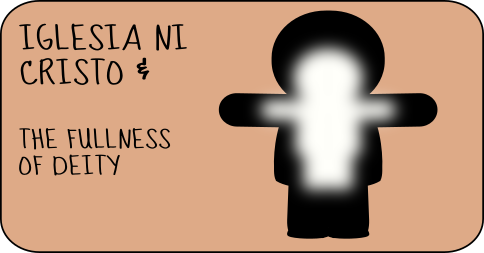Does Colossians 2:9 teach that Jesus is God?

Colossians 2:9 (ESV) - For in him the whole fullness of deity dwells bodily,
Many point to Colossians 2:9 as evidence of the deity of Christ. However, others such as the organization known as the "Iglesia Ni Cristo" reject this interpretation. What is the correct understanding of this verse?
When we examine the scriptures, we see that it does indeed affirm the deity of Christ.
This verse teaches that Jesus is God incarnate.
Without delving into the Greek words used, "deity" means the quality of being God and "bodily" means physically. In Jesus we find the fullness of God in physical form.
Paul is speaking in response to human philosophy.
The previous verse says:
Colossians 2:8 (ESV) - 8 See to it that no one takes you captive by philosophy and empty deceit, according to human tradition, according to the elemental spirits of the world, and not according to Christ.
Many accuse those who believe in the deity of Christ to be appealing to human philosophy. This is not the case because the deity of Christ is some that is taught in scripture, such as here. However, this idea that God cannot become incarnate is human philosophy. There is no verse that says such a thing, it is merely human wisdom that such a thing seems impossible.
Paul was likely responding to an early form Gnosticism which teaches that we
must obtain some special knowledge, and that which is physical is inferior.
The fact that God continues to exist in human form is a direct contradiction to
Gnosticism for two reasons:
1. If he is God in the flesh, then that which is physical is not inferior.
2. If he is God in the flesh, then he has all the treasures of wisdom and
knowledge (Col 2:3), and there is no secret knowledge to be gained
elsewhere.
The "dwelling" is not equivalent to the way that God dwells in us.
Some point to Ephesians 2:9 to point to the way we are filled with the fullness of God.
Ephesians 3:19 (ESV) - 19 and to know the love of Christ that surpasses knowledge, that you may be filled with all the fullness of God.
This approach has several significant flaws. First, the Greek word for "God" and the Greek word for "deity", are not the same, so this is not talking about precisely the same thing. Secondly, Ephesians 3:19 is speaking of the indwelling of the Holy Spirit (see Ephesians 3:16) and Christ (see Ephesians 3:17). Thirdly, this removes the uniqueness of Christ from the passage. If Jesus is merely filled with fullness of God as we are, then he is only a better version of us and not the source of wisdom and knowledge that Collossians speaks of (Colossians 2:3).
The context shows that our filling is different than the deity in Colossians 2:9.
We see what it means for us to be filled in the actual context of Colossians 2:9 (as opposed to in an entirely different book).
Collosians 2:10 (ESV) - 10 and you have been filled in him, who is the head of all rule and authority.
We are filled in Christ. Obviously our filling is in Christ which is different than what we see spoken of about Christ. It does not say he is filled with himself or even that he is filled with the Father, or even that he is filled. It says that the fullness of deity dwells in him.
The dwelling of deity in Collossians 2:9 is not an alien dwelling. It simply means that God dwells/exists/remains in human form and that we witness this phenomenon in the person of Christ.
Conclusion
Colossians 2:9 plainly speaks of the deity of Christ. Those who demand extra clarity demand too much. This passage is sufficiently clear, and the rest of scripture is sufficiently clear.
Organizations such as the "Iglesia Ni Cristo" should cease to worship Jesus as a highly exalted man, and worship him as God in the flesh. Not to do so is to create a god of one's own understanding and to not worship the God of the Bible.
